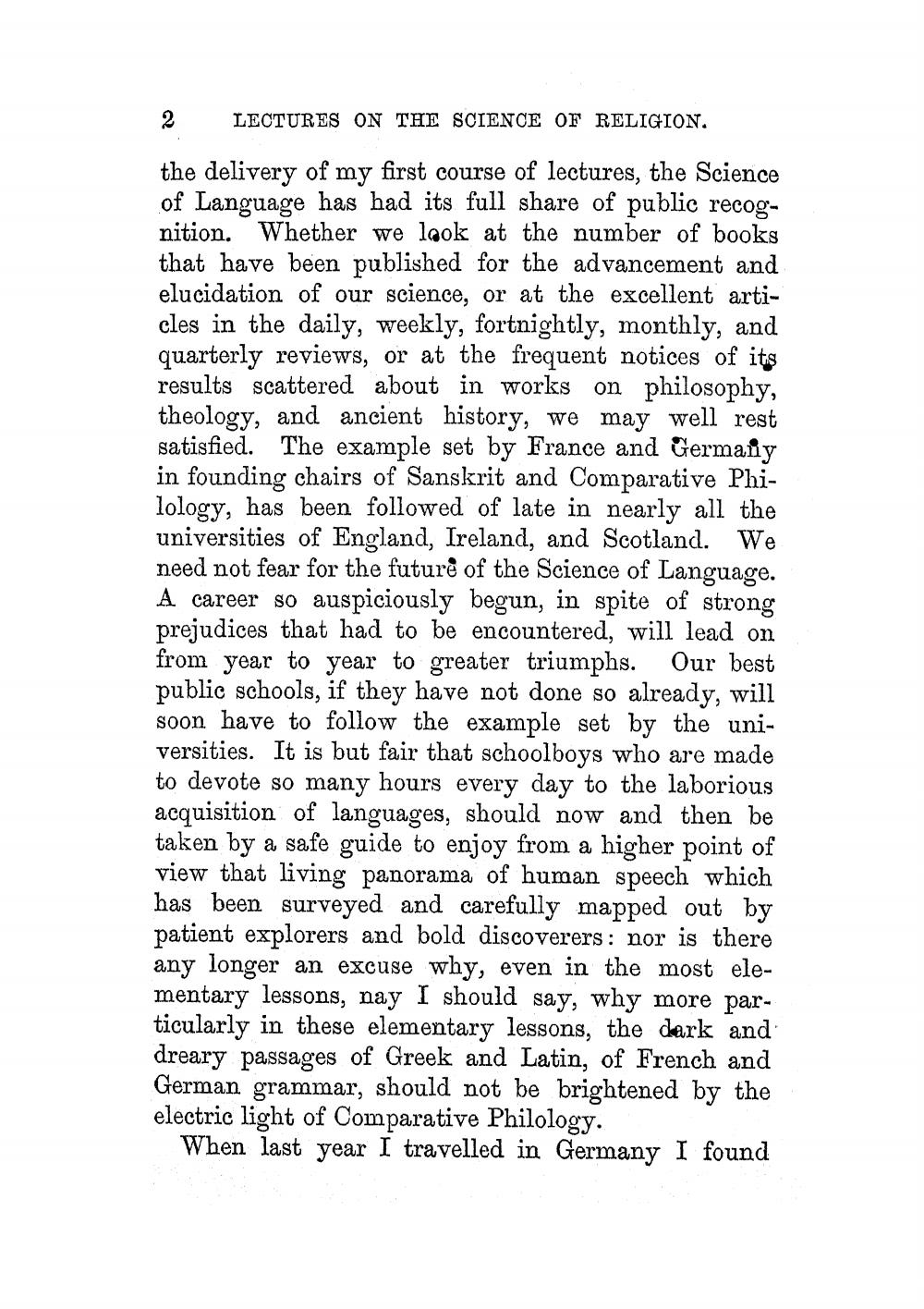________________
2
LECTURES ON THE SCIENCE OF RELIGION.
the delivery of my first course of lectures, the Science of Language has had its full share of public recognition. Whether we look at the number of books that have been published for the advancement and elucidation of our science, or at the excellent articles in the daily, weekly, fortnightly, monthly, and quarterly reviews, or at the frequent notices of its results scattered about in works on philosophy, theology, and ancient history, we may well rest satisfied. The example set by France and Germany in founding chairs of Sanskrit and Comparative Philology, has been followed of late in nearly all the universities of England, Ireland, and Scotland. We need not fear for the future of the Science of Language. A career so auspiciously begun, in spite of strong prejudices that had to be encountered, will lead on from year to year to greater triumphs. Our best public schools, if they have not done so already, will soon have to follow the example set by the universities. It is but fair that schoolboys who are made to devote so many hours every day to the laborious acquisition of languages, should now and then be taken by a safe guide to enjoy from a higher point of view that living panorama of human speech which has been surveyed and carefully mapped out by patient explorers and bold discoverers: nor is there any longer an excuse why, even in the most elementary lessons, nay I should say, why more particularly in these elementary lessons, the dark and dreary passages of Greek and Latin, of French and German grammar, should not be brightened by the electric light of Comparative Philology.
When last year I travelled in Germany I found




